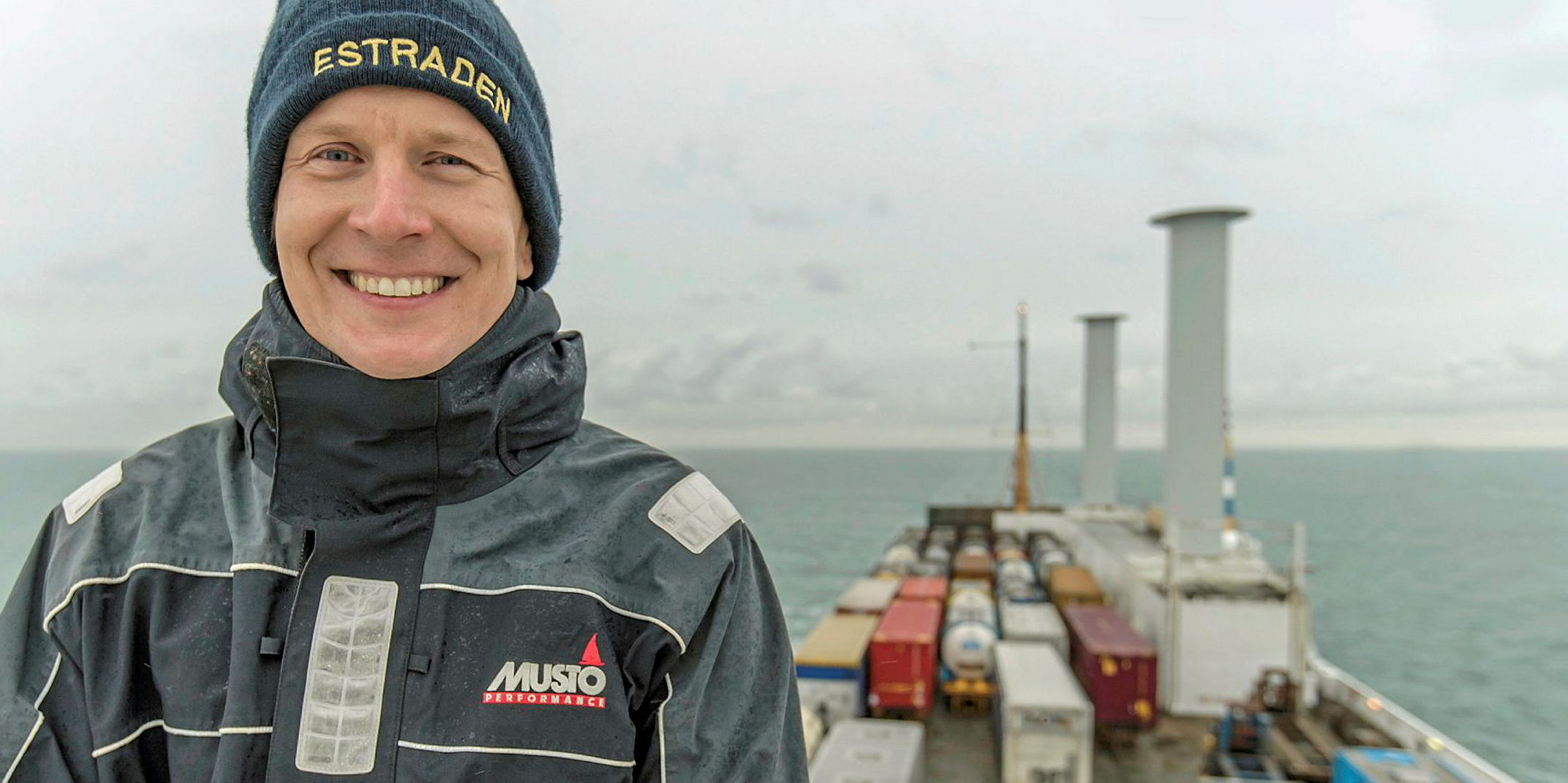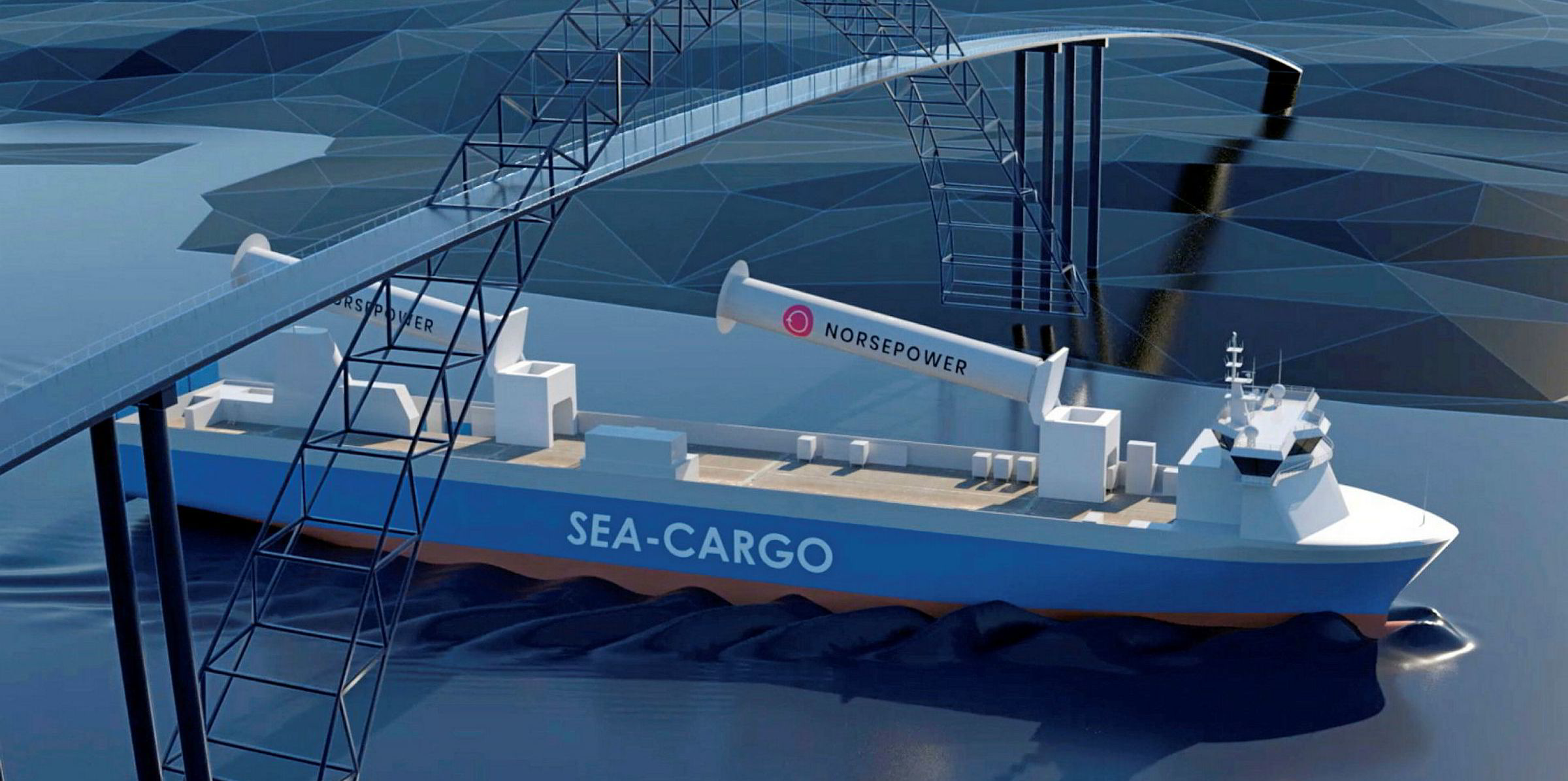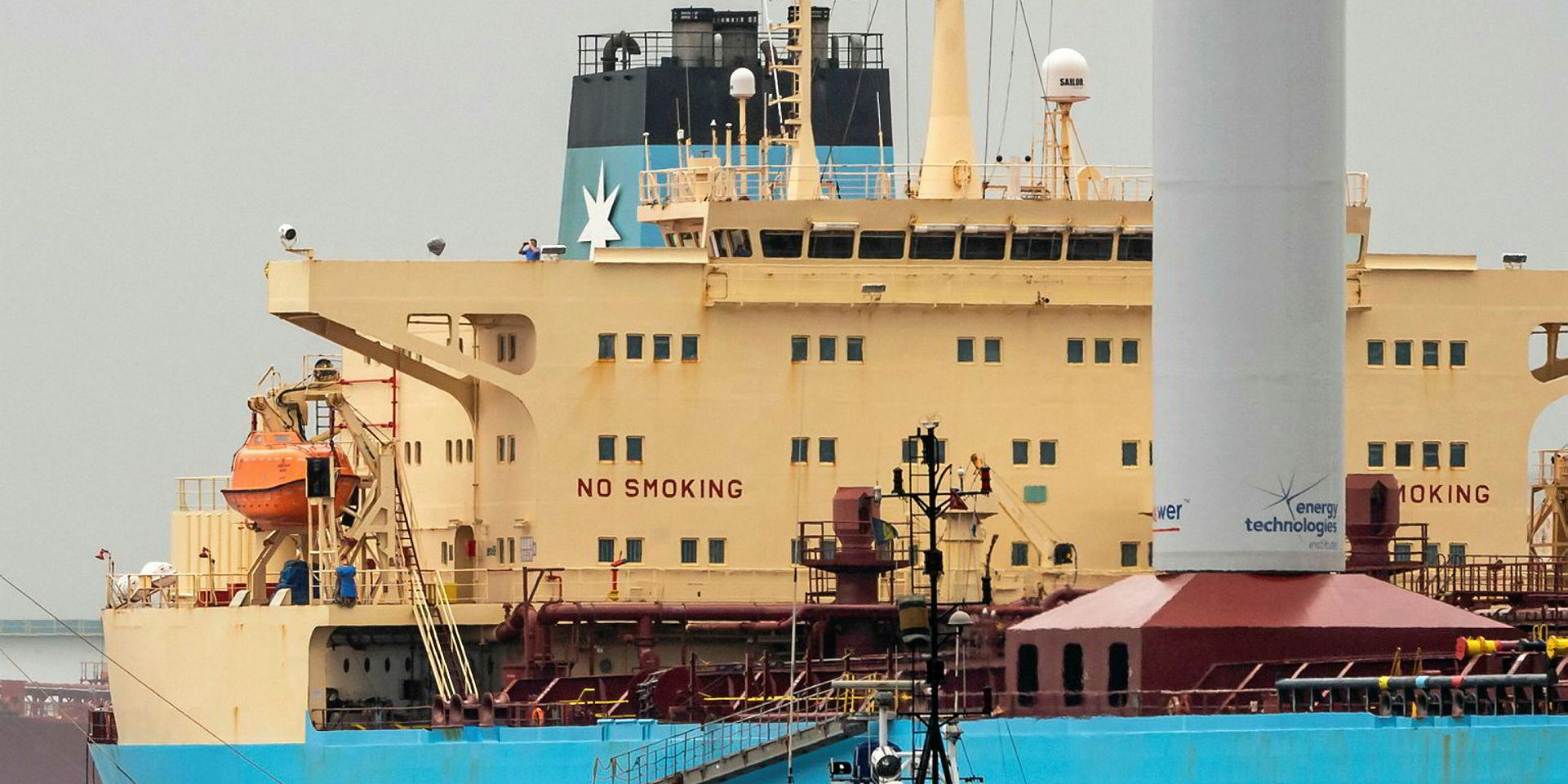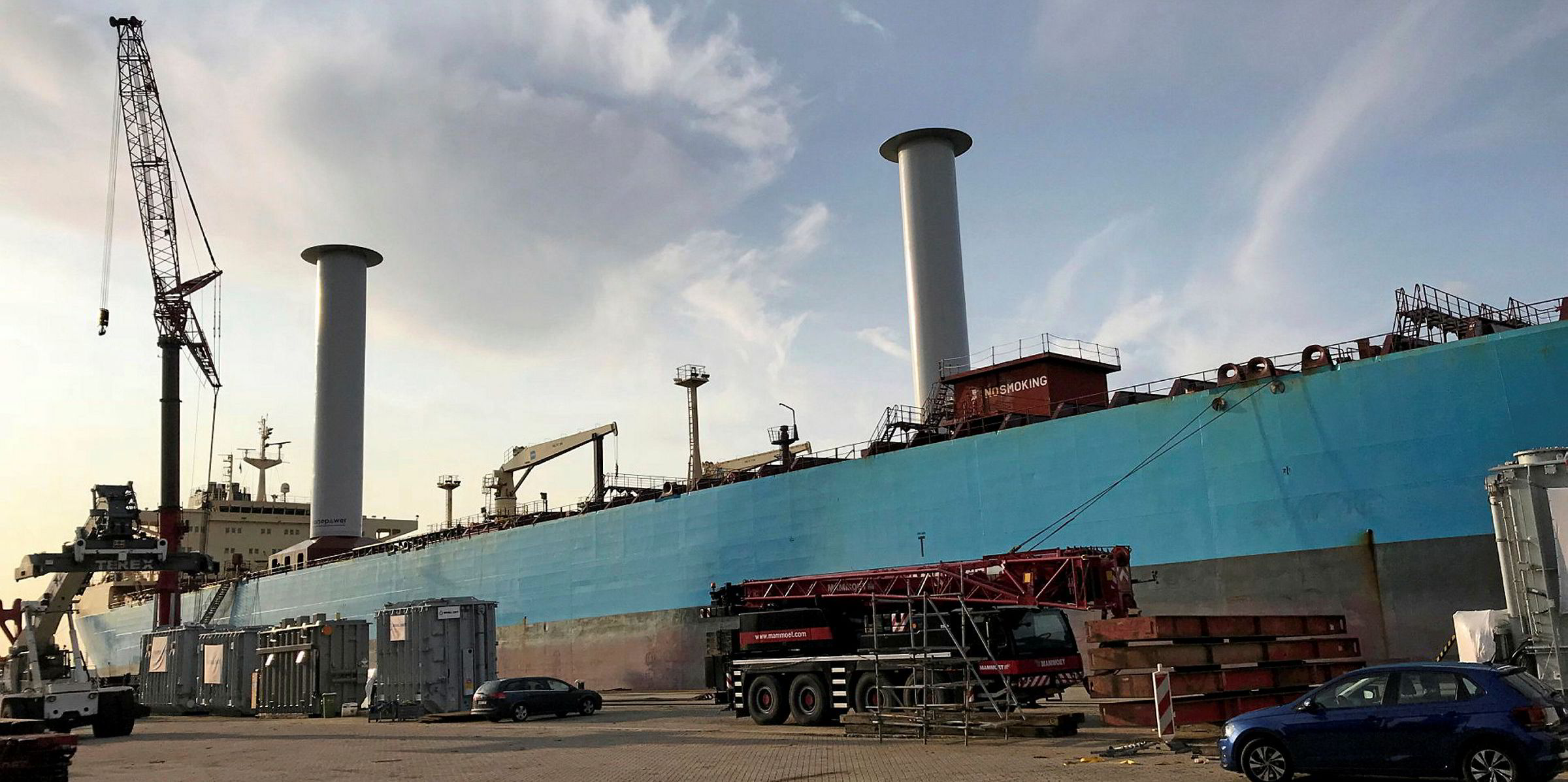Norsepower has revealed the world’s first tilting rotor sails, which will be installed on a Sea-Cargo ro-ro ferry.
Two of its largest 35-metre rotors will be installed on the 8,843-dwt SC Connector (built 1997). The vessel operates in the North Sea, which provides some of the most favourable wind conditions for rotor sails.
The SC Connector's route involves navigating under multiple bridges and power lines.
Norsepower, a Finnish marine wind propulsion system developer, said the rotors are able to tilt to an almost horizontal position when required and it estimates they could achieve a 25% carbon emissions reduction for the SC Connector.
Sea-Cargo managing director Ole Saevild said: “The goal of this project has been to design more environmentally friendly vessels by combining several existing technologies. In good wind conditions, the sailing hybrid vessel will maintain regular service speed by sail alone.”
Tommy Thomassen, chief technology officer of Maersk Tankers, said last week that his company believed Norsepower’s rotors “have more potential than other current technologies out there for retrofits and newbuildings”. He made the comments in a webinar about a one-year test of two of the units on its 110,000-dwt product tanker Maersk Pelican (built 2008).
Sails start automatically when wind is strong enough

Maersk Tankers is keeping the rotor sails on the LR2 vessel after the trials showed an 8.2% fuel saving on routes that are not particularly suited to wind propulsion.
Norsepower’s rotors are a modernised version of the Flettner rotor, a spinning cylinder that uses the Magnus effect to harness wind power to deliver thrust. They are fully automated to go into action when they detect that the wind is strong enough to deliver fuel savings.
The retrofit on the SC Connector is planned for the fourth quarter of 2020.
Norsepower chief executive Tuomas Riski said in the webinar that analysis it had done on the current world fleet predicted that if rotors were fitted to 25,000 ships, global vessel CO2 emissions would be reduced by about 7%.
“We can play a role in reducing the energy consumption of ships. We can’t resolve the entire industry’s decarbonisation, but we can make quite a nice contribution,” he said.
Sea-Cargo was founded in 2001 by the merger of the liner activities of Seatrans and Nor Cargo, two firms trading between the west coast of Norway and the UK and mainland Europe.






